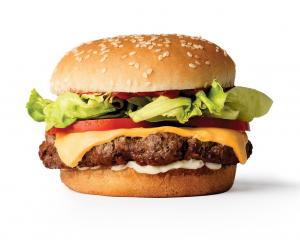What does food mean to you?
Some years ago, New Zealand products were under fire in the United Kingdom because of the food miles it took to get those products from New Zealand farms to their supermarket shelves. At an intuitive level, it made sense - why should a consumer buy food that had travelled half way around the world, when they could buy locally sourced food?
Human intuition, however, did not take into account that many New Zealand food products, such as lamb, which is grown on grass rather than housed, is produced, processed and shipped in such an efficient manner that it has a lower carbon footprint than locally grown UK product. In fact, the carbon footprint of New Zealand lamb is more than four times lower than the United Kingdom equivalent (https://researcharchive.lincoln.ac.nz/bitstream/handle/10182/4317/food-m...).
Measuring sustainability is complex, and so, too, is measuring the nutritional value of food, yet we are bombarded regularly with new products that make claims around both sustainability and nutritional value which are plausible but not necessarily evidence-based.
I am a big fan of trying new products; a marketer's dream, my husband tells me. I currently have several types of ``milk'' on the go and I am not alone. According to the New Zealand Consumer organisation ``last year, we spent more than $52million on almond, coconut, oat, rice and soy milk in supermarkets alone, an increase of $12million in 2 years. Almond and coconut milk sales have been the biggest movers, with sales increasing nearly 60%.''
Most of us understand that cow's milk is a good source of liquid nutrition, containing protein, vitamin B12, vitamin D and calcium. The Ministry of Health's healthy eating guidelines recommend we consume two servings of milk or milk products every day. What do we know about plant-based milks compared with cow's milk? According to a recent study published in the Journal of Food Science and Technology (Vanga and Raghavan, 2018), none of the plant milk products stack up nutritionally compared with cow's milk. Soy milk comes the closest, but almond, rice and coconut milks all lack protein and the essential nutrients important for overall health. Companies can add essential nutrients, but are they in a bioavailable form that your body can absorb?
What about sustainability? It is hard to imagine cow's milk coming out on top on this one - water or carbon footprint wise - but as I said earlier, intuition does not always prove right. I did not find a direct scientific comparison, but plant-based milks have their environmental challenges as well. The almond-milk industry in California, where more than 80% of the world's almond crop is grown, has come under considerable attack for its extensive use of water, especially during times of high drought in the region (https://www.theguardian.com/lifeandstyle/shortcuts/2015/oct/21/almond-mi...). Apparently, it takes five litres of water to grow one almond, and in California, much of that water has been pumped from deep aquifers, causing concern around subsidence of land.
I am not advocating drinking cow's milk over other milks; there are many reasons, including allergies, why someone might choose to switch. What I am advocating for is evidence-based debate around food-fads as they are presented to us. Like most things in life, new products will come with their own costs and these may not be noticeable until industries are scaled.
Emotion and intuition are not always our best friends either. I chuckle when I hear people discuss going back to diets ``more like our grandparents'''. My grandmother lived to be 93 and had cake for morning tea and dessert every night, meat and three veg, plenty of butter and probably lard too. I am not sure a dietitian in today's society would be leaping with joy at that!
The best we can do, in my view, is to enjoy all that food brings - sustenance, nutrients, variety, seasons, experimentation, cultural learning and importantly, social bonding and love. Food should not be a chore, nor something to feel guilty over. Enjoying quality, balanced food together is more important than living in fear of a nutritional bar code.
Anna Campbell is managing director of AbacusBio Ltd, a Dunedin based agri-technology company.












